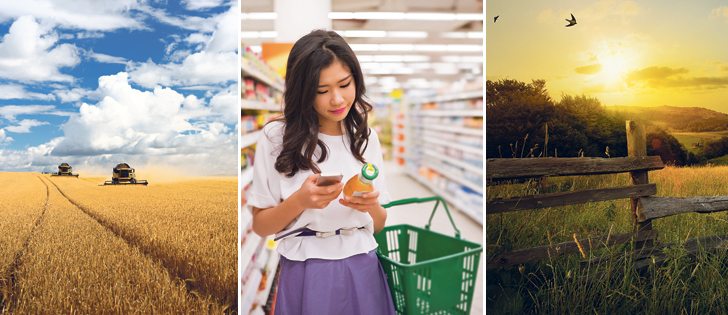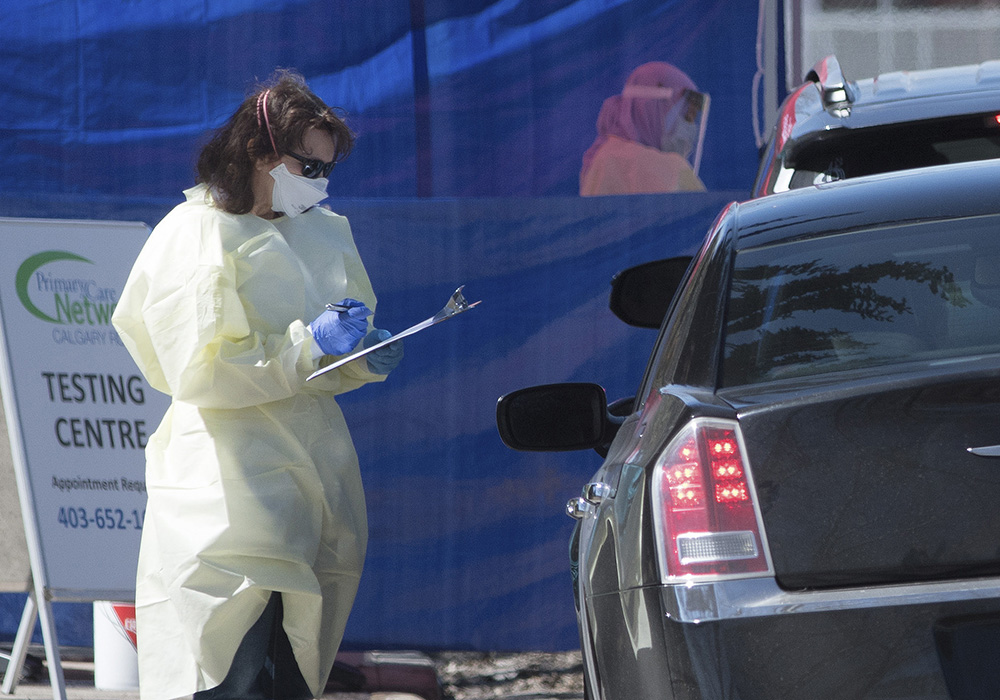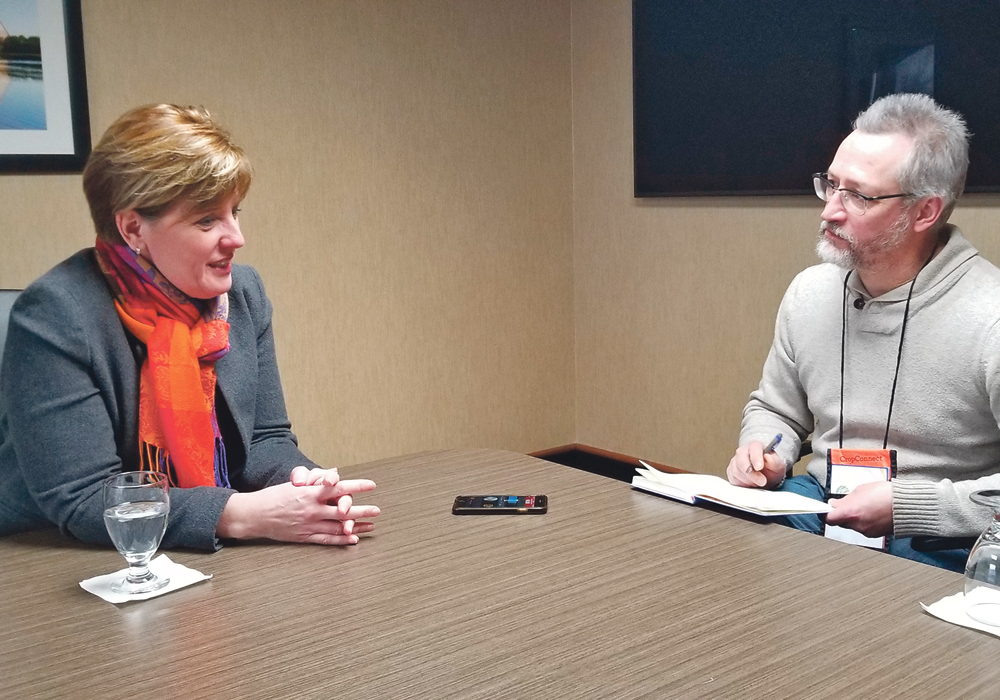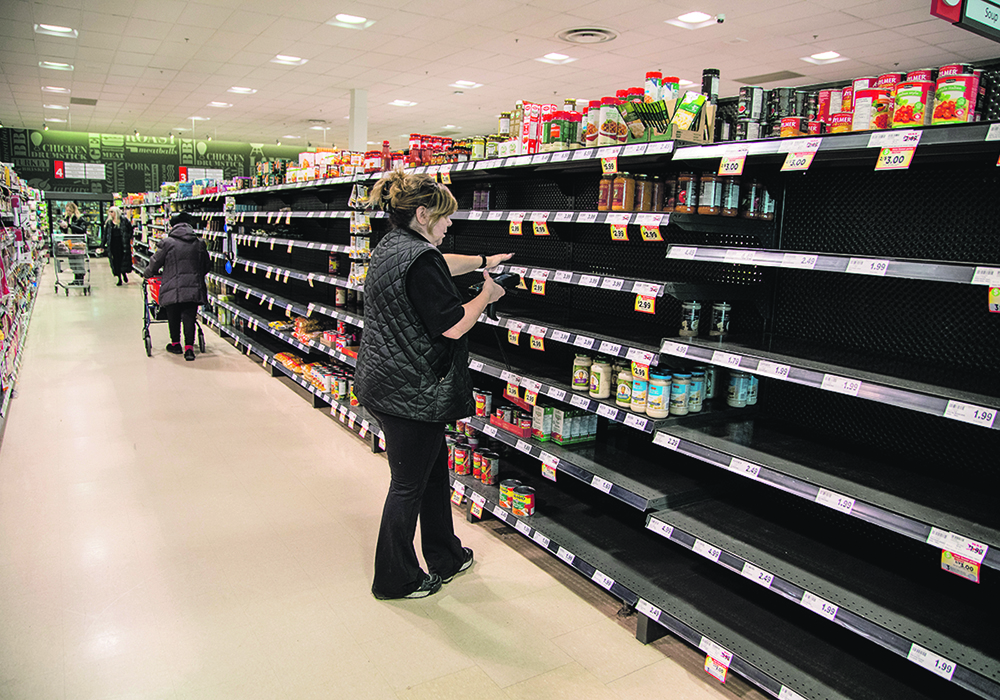Concentration on environment, health and consumer trust could power agri-food forward, says sector official
David McInnes realized around 2010 that Canada’s agri-food industry needed a new vision, one in which the business of food is deeply connected to environmental stewardship and consumer health.
Seven years later, he’s convinced that Canada can become a global powerhouse in agriculture and food if business leaders and policy makers embrace that vision.
“It’s so clear to me that this is going to be one of the handful of sectors in the Canadian economy that’s going to determine the 21st century for the country,” said McInnes, president of the Canadian Agri-Food Policy Institute in Ottawa.
Read Also

Farming Smarter receives financial boost from Alberta government for potato research
Farming Smarter near Lethbridge got a boost to its research equipment, thanks to the Alberta government’s increase in funding for research associations.
McInnes announced in December that he is stepping away from CAPI, after leading the organization for eight years.
“CAPI’s extensive research on the importance of Canada’s food processors brought national attention to the country’s largest manufacturing sector,” said Ted Bilyea, CAPI chair and former vice-president with Maple Leaf Foods.
“(David) also identified new ways to position the Canadian food brand and enhance food exports to China — ideas that have since been adopted by governments.”
McInnes joined CAPI in 2009 after working for Nordion, a company that provides medical isotopes and other technologies to the health-care industry.
He attended countless meetings and published many reports while at CAPI, but two signature ideas stick in his memory.
Through consultations with industry leaders, he came to the conclusion that Canada’s food sector needed a “destination,” or goal, to pull things in the right direction.
That destination is a place where the economics of agriculture and food production are directly linked to health and environmental outcomes for society. Those linkages are the foundation of a trustworthy agri-food sector and possibly a national food policy.
McInnes said industry and government leaders have already moved toward the destination.
“The health-environment agenda is interwoven in the products we buy every day,” he said.
“We’re seeing it globally and nationally.… Pretty well everyone in the sector is trying to figure out how to meet their greenhouse gas commitments, other sustainability commitments and (also) improve nutrition.”
McInnes’s other big idea at CAPI was the role of consumer trust. The institute hosted a forum in 2015 to answer a provocative question: could Canada become the most trusted food system on the planet?
Some participants at the event, including Maple Leaf Foods chief executive officer Michael McCain, dismissed the idea.
“Canada isn’t large enough or influential enough or competitive enough as an industry … to try and establish and paint one brush across the whole industry, saying we’re going to compete on a different plane,” he said.
However, McInnes remains convinced that trust is a massive opportunity for Canada.
“It really became apparent to us that trust is perhaps one of the most important issues facing the entire agri-food sector.”
McInnes may be right because companies such as Unilever are spending millions on sustainability initiatives.
The British corporation, with more than US$100 billion in annual sales, wants to buy food and ingredients from suppliers that take steps to preserve the Earth’s water, air, trees and habitat.
For instance, Unilever has committed to buying 100 percent of its palm oil from sustainable sources by 2019.
McInnes said Canada can deliver on sustainability because it’s one of the few countries that can produce substantial quantities without destroying its natural resources.
“What we’re seeing now … many supply chains are grappling with how to produce and supply food without undermining ecosystems…. That fundamentally is a trust issue,” he said.
“If we’re able to do this well and document this with credible data, this is where Canada can really leverage its competitive advantage. There’s a lot we have to do to deliver on this potential, but the promise is huge … to be the trusted source of high quality, nutritious food.”
McInnes remains at CAPI until March, but he hasn’t settled on his next job.
In the meantime, he is chairing the non-governmental organization WaterAid Canada, which specializes in water and sanitation issues in the developing world.


















